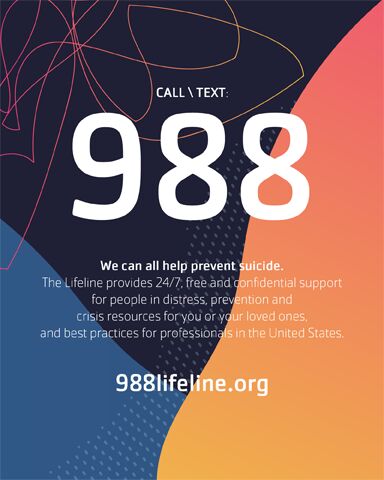Dealing With Dynamics at Home
Whether your experience is positive or negative, mental health starts at home. Your environment, the people you spend the most time with, and even the neighborhood you live in all impact you somehow.
As a young person, this can cause frustration because you likely don’t have the decision-making power in your home to change things that cause you stress. In addition, you may experience additional challenges in the house if you hold a marginalized identity. However, it’s important to remember that we live in stressful times that impact everyone. You are not alone.
Common stressors you may experience include:
- Conflict with parents
- New and growing responsibilities
- Unaccepting family members
- Abuse
- Absent Parents
- Sick or disabled parents
- Caregiving responsibilities
Separation or Divorce
Since the 1960s, the divorce rate in the U.S. has increased consistently. Divorce is stressful for the people involved, including the children. Separation and divorce are disorienting and emotional and can have a dynamic effect on your mental health.
If your parents are separating or divorcing, you may have complicated feelings about it, and that’s okay. On the flip side, there is nothing wrong with you if you don’t feel strongly about the divorce. Sadness, anger, grief, relief, or even a combination of feelings is normal for you to experience.
If your feelings negatively affect your daily life, share that with your parents. They can support you by having an open conversation, or you can sit down with a mental health professional together.
Absent or Unknown Parent
The two-parent household is often the standard in books, movies, and TV shows. Real U.S. families paint a different picture, however. Along with the traditional two-parent home, there are single parents, grandparents raising grandchildren, older siblings raising their younger siblings, and more.
Whether your parent left voluntarily or involuntarily, the experience impacted you somehow. Having one less parent can introduce added pressure to help around the house. You may feel like you’re missing out on something. All these feelings are valid.
While processing your emotions, you may feel the urge to blame yourself for a parent’s absence. It may even take a long time to get into a healthy mindset about them being gone, and that’s okay. But your parent’s absence is not your fault, no matter the reason.
Be honest about your feelings and the support you need. For some, this could mean reaching out to a trusted adult or mentor you met at the Y. For others, it could mean connecting with other family members or getting mental health treatment. You could even do a combination of all three options. The most crucial part is that you process your emotions healthily and safely.
Death of a Parent or Loved One
The death of a parent or loved one is a traumatic event, and one that may take a while to process. It’s important that you utilize your support system including friends, loved ones, and even mental health professionals.
Don’t be ashamed to take time off to give yourself time to grieve. After all, you’re adjusting to a reality without someone you deeply cared about. If you have siblings or other family members, spend time with them as they’re likely dealing with similar struggles.
Everyone processes loss in different ways. The most important thing is to use coping mechanisms that prioritize your health and safety, like:
- Spending time with family or friends
- Attending a grief support group
- Talking with a therapist or counselor
- Prayer
Adoption
Being raised in a home without your biological parents can raise many questions as you get older. You may question your worth, wonder what happened to your parents, and maybe even feel abandoned. However, all the feelings you have are normal and valid.
Talk to your adoptive parents if you experience growing curiosity or negative feelings about your adoption. When they adopted you, they knew one day you might have questions. Even if they don’t have an answer, they may be able to connect you with someone who does.
Caregiving
Caregiving as a teenager is difficult and can strain your mental health. Unfortunately, we can’t control whether an immediate family member suddenly becomes severely ill or disabled. When something like that happens to a family member, it’s easy to feel you need to take on extra responsibility even if no one asks.
If you’re a teen caregiver, do your best to balance enjoying your teenage years with your newfound responsibilities. You may feel guilty stepping away from your responsibilities at home, but it’s an integral part of growing up.
Working
There are benefits to having a job, like learning responsibility, leadership skills, communication skills, and more. Whether you’re helping with family bills or want your own money, having a job as a teenager is tough to balance with school.
Jobs are physically draining on their own. But, when you add school and extracurricular activities, you barely have time for a social life, which brings joy and helps you learn and develop the social skills needed to excel.
If you’re having trouble balancing all your responsibilities, speak to a trusted adult like a teacher or school counselor. They can help you figure out how to prioritize your schedule to give you the best outcome.
Even if you don’t have a job, you can feel the effects of a busy work life. For example, you may end up waiting hours after school or arriving home to an empty house if your parents have a demanding work schedule. If this affects you negatively, talk to your parents about it. When you get your feelings out in the open, it can be easier for families to come together and offer support when you feel neglected, sad, or overwhelmed.


